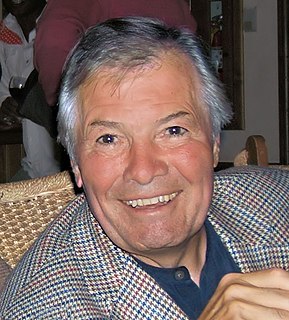Top 41 Quotes & Sayings by Jacques Pepin
Explore popular quotes and sayings by a French chef Jacques Pepin.
Last updated on April 15, 2025.
You know, my parents had a restaurant. And I left home, actually, in 1949, when I was 13 years old, to go into apprenticeship. And actually when I left home, home was a restaurant - like I said, my mother was a chef. So I can't remember any time in my life, from age 5, 6, that I wasn't in a kitchen.
Food can be utilized for economic reasons, like the grain embargo of Carter 40 years ago. You have a political decision, you are going to move the flow of food in a part of the world and not another part of the world. And certainly now, with the way the country is polarized and all that, you wouldn't want to have a French menu, with a French thing - you'd be crucified! Or anything like that. You have to be a real American and apple pie and this and that.
























